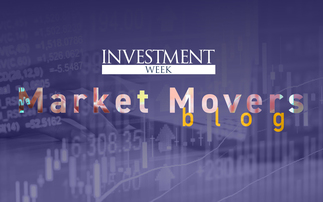
Going into 2022 the market repriced for bad news - and there was certainly no shortage of that. We have seen deteriorating US-China relations and associated tariffs and trade wars; the Covid pandemic and subsequent supply-chain problems; the Russian invasion of Ukraine and intensified pressure on energy resources; and the great resignation and a reduction in the participation rate of workers. In addition, we have seen stickier headline inflation and rising interest rates, expectations for a recession, and in the UK a period of intense volatility as the government and its policies see-sawed.
For 2023 we may see many of these macro conditions continue, but in the US in particular we don't necessarily expect these to result in an extended deep recession, and as long as things don't deteriorate significantly investors may begin to feel more optimistic and we might see market conditions improve. We believe the recession in Europe will be deeper than the US, but the unpredictability of the situation around Russia and Ukraine makes it difficult to factor this into a central case. In each instance, however, no more bad news could end up being good news for investors.
A different story on inflation and interest rates
Headline inflation should come down in the US unless energy prices increase substantially. Core inflation is likely to be stickier, but stable or lower readings mean that the US Federal Reserve might pause interest rate rises in early 2023. We would not expect a looser monetary environment as rates come down, but with some stabilisation 2023 should be a different year.
In terms of raising rates, in our view the European Central Bank (ECB) has more work to do than the Fed. The ECB only began to hike in July 2022, so although it is unlikely to raise rates as high as in the US it may have to do so for longer. However, there is a little less clarity on inflation in Europe given both the war and the reliance on imports in the region, particularly of energy. Whereas the US is considerably more self-sufficient, Europe has worked to build up energy inventories1, but a particularly cold winter could see rationing and additional contribution to an economic slowdown.
Interest rates in the UK, meanwhile, remain a little bit unpredictable following a change in government and a reversal in policy.
Overall, although I don't expect global rates to come down in 2023, an end to the guessing game about how high they go has the potential to be a positive catalyst (Figure 1).
Figure 1: The majority of developed market central banks (in yellow) expect to reach terminal rate in 2023
Source: Bloomberg, November 2022
A recession playbook with a twist
So, it seems inevitable that Europe will see recession, and in the US we will have to watch the Fed and assess how much economic pain it deems necessary to beat inflation. Although I don't think we will see a recession along the lines of 2020 or 2008, given the risks I believe focusing on quality will be essential for success - across asset classes and regions - because there are going to be companies that are able to survive a recession much better, and those that are going to be less well prepared.
In fixed income, credit quality is likely to be a much greater determinant of success in 2023 relative to 2022 when duration was the key driver. There are a lot of companies which built up strong balance sheets during the periods of low interest rates, but the almost indiscriminate fall in valuations has created pockets of opportunity in markets.
In equities it is a similar story with quality of earnings and balance sheets the likely requisites for success. Although we have seemingly emerged from Covid-19 in the west, we are not quite "normal" in terms of activity. We are, however, seeing more spending on services than goods, and areas of recovery that are different to those areas of strength we saw in 2020/21. Usually in a recession you would avoid economically sensitive sectors, and investors should be cautious, but this "return to normal" does create opportunities even with the prospect of recession.
In both equities and fixed income, however, you need a really thorough analysis capability to find the winners with strong balance sheets that can survive a recession, and we pride ourselves on that at Columbia Threadneedle.
We must also be aware that this is a different environment to the past few decades: low inflation goes back to the 1970s and 1980s, so we must be careful about extrapolating from those periods which companies and sectors will do well over the next few years. In a time of cheap money, weaker companies perhaps survived for longer than they would in an environment where money is more normally priced, and they are about to be tested in ways they haven't previously experienced.
The same focus on quality applies to relative opportunities across regions. Europe is cheaply valued compared to the US but is facing greater headwinds; emerging markets, dominated by China, are also relatively cheap but are experiencing uneasy geopolitical relationships and trade restrictions; while the US looks pretty reasonable in terms of valuations and is the broadest market. Again, research and analysis will be key in finding the right opportunities.
1Reuters, Mission accomplished? Europe fills gas storage ahead of schedule, 4 October 2022
This post is funded by Columbia Threadneedle Investments
Important information: Past performance is no guide to future returns. The value of investments and any income is not guaranteed and can go down as well as up and may be affected by exchange rate fluctuations. This means that an investor may not get back the amount invested. Your capital is at risk. Threadneedle Specialist Investments Funds ICVC ("TSIF") is an open-ended investment company structured as an umbrella company, incorporated in England and Wales, authorised and regulated in the UK by the Financial Conduct Authority (FCA) as a UCITS scheme. Certain sub-funds of TSIF are registered for public offer in Austria, Belgium, Chile, Denmark, France, Germany, Ireland, Italy, Luxembourg, the Netherlands, Norway, Portugal, Singapore, Spain, Switzerland, Sweden and the UK. Shares in the Funds may not be offered to the public in any other country and this document must not be issued, circulated or distributed other than in circumstances which do not constitute an offer to the public and are in accordance with applicable local legislation. Please read the Prospectus before investing. Subscriptions to a Fund may only be made on the basis of the current Prospectus and the Key Investor Information Document, as well as the latest annual or interim reports and the applicable terms & conditions. Please refer to the `Risk Factors' section of the Prospectus for all risks applicable to investing in any fund and specifically this Fund. The above documents are available in English, French, German, Portuguese, Italian, Spanish and Dutch (no Dutch Prospectus), Swedish (for the Key Investor Information Document only) and can be obtained free of charge on request from: Columbia Threadneedle Investments PO Box 10033, Chelmsford, Essex CM99 2AL. Issued by Threadneedle Investment Services Limited. Registered in England and Wales, Registered No. 3701768, Cannon Place, 78 Cannon Street, London EC4N 6AG, United Kingdom. Authorised and regulated in the UK by the Financial Conduct Authority. Columbia Threadneedle Investments is the global brand name of the Columbia and Threadneedle group of companies. columbiathreadneedle.com













